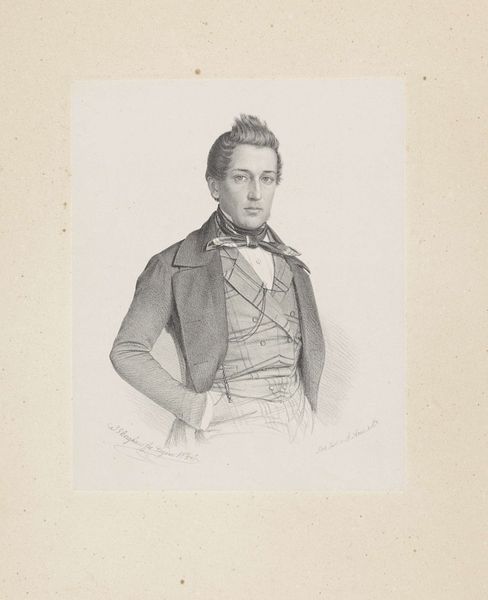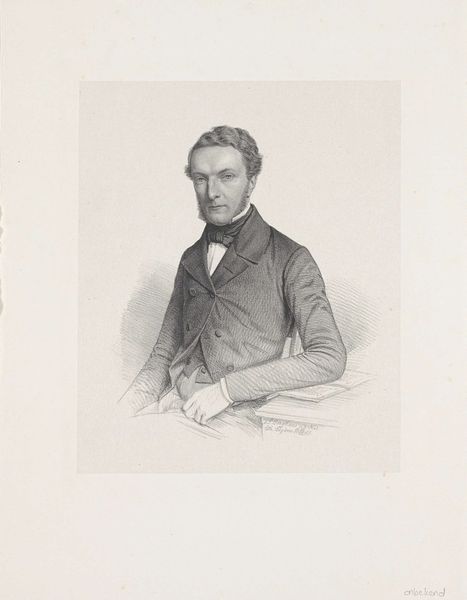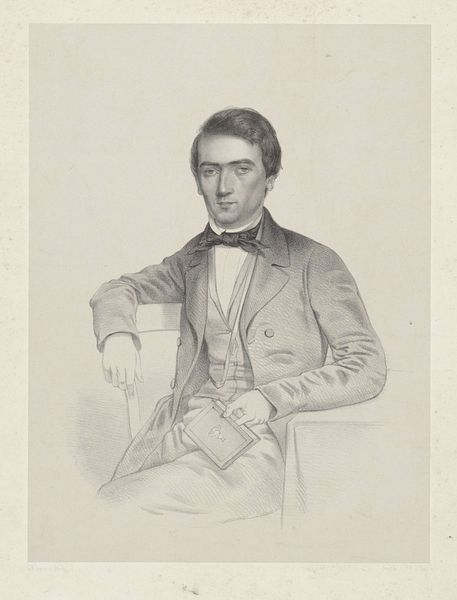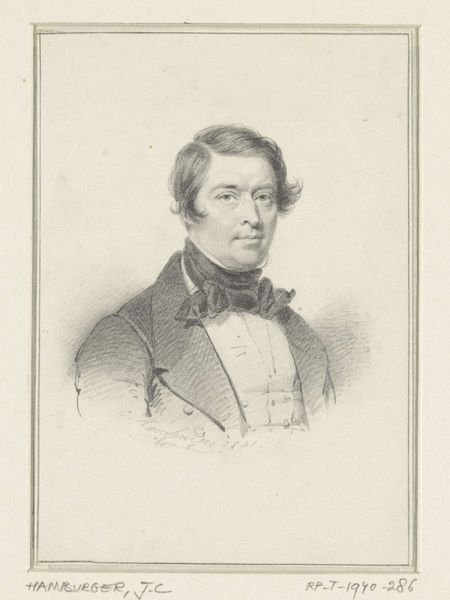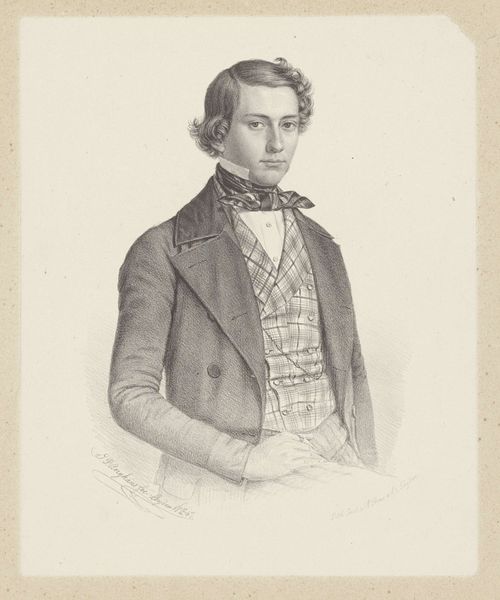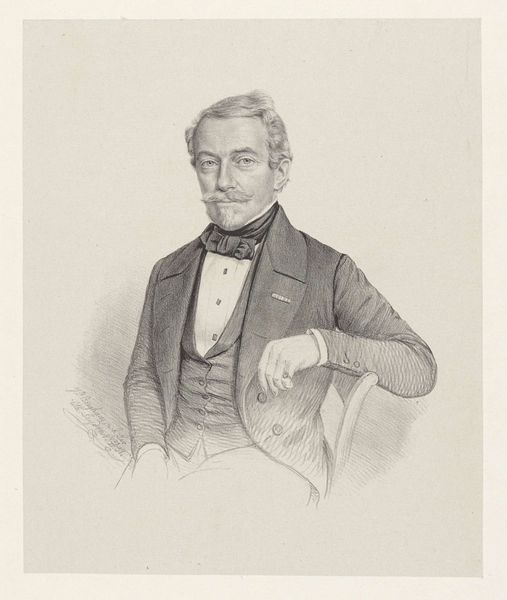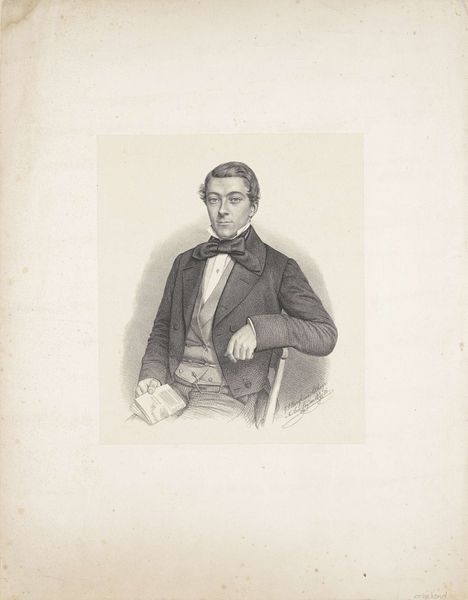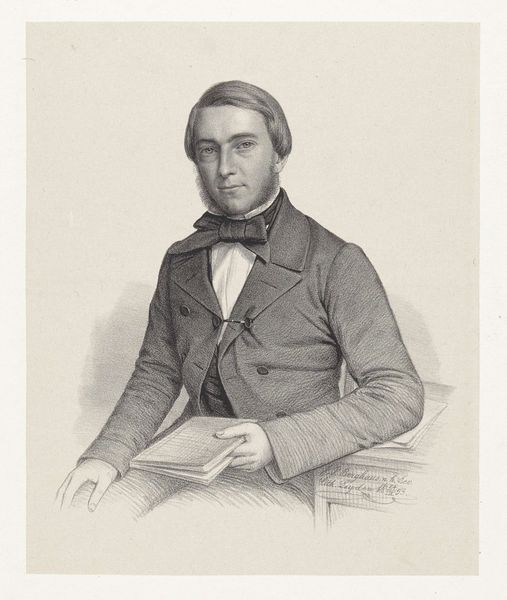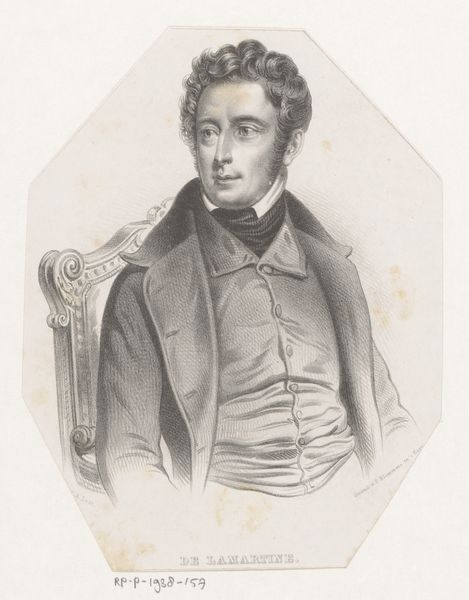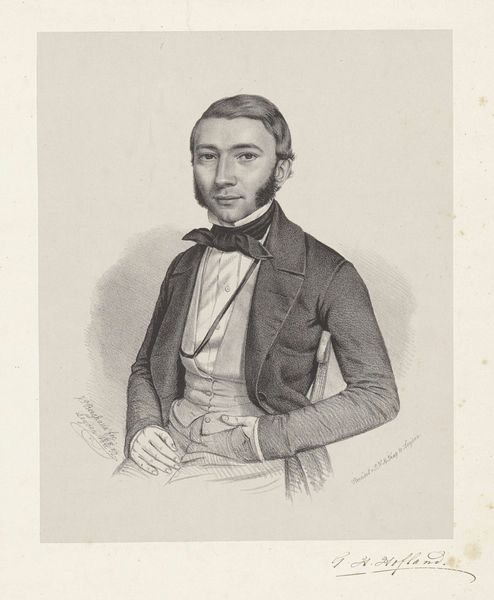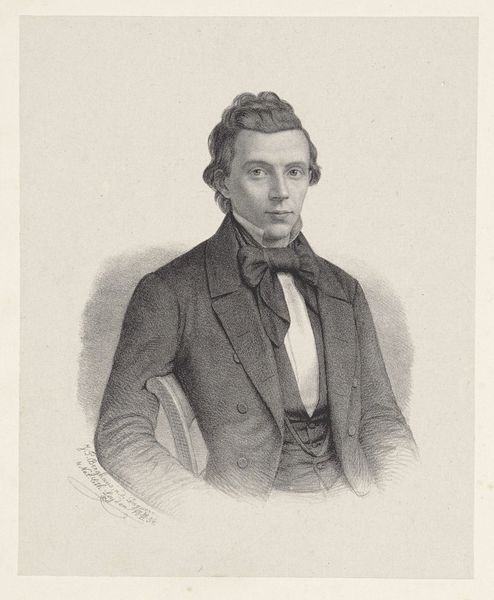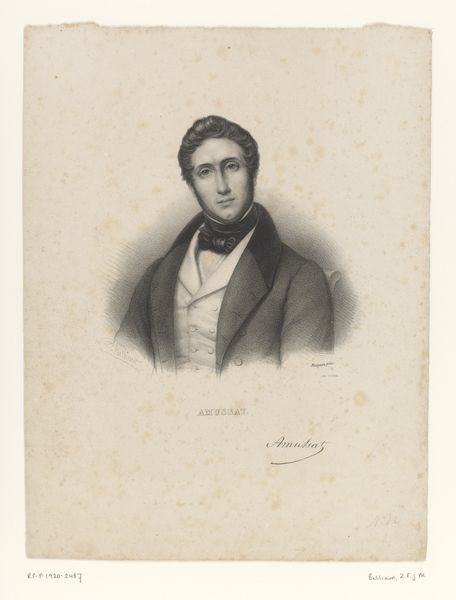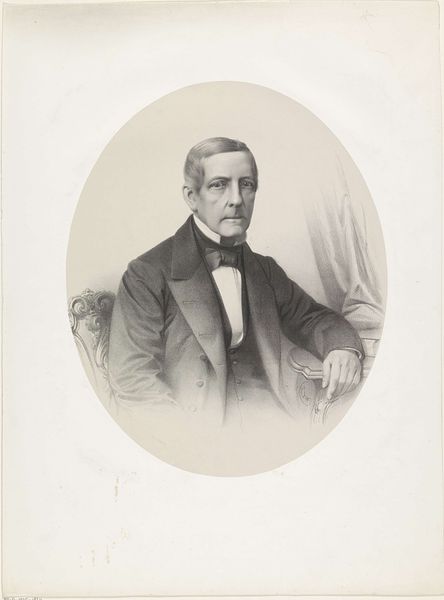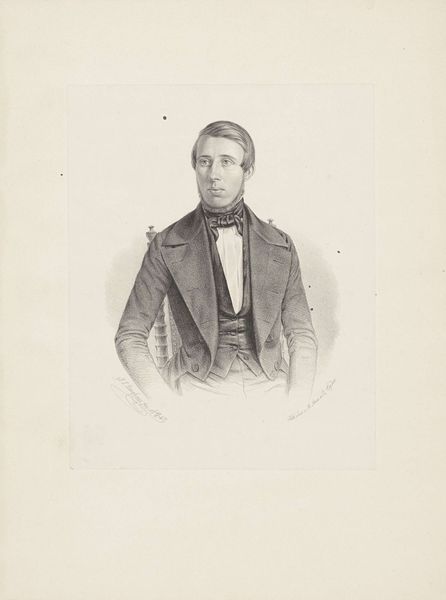
drawing, pencil, graphite
#
portrait
#
drawing
#
pencil sketch
#
romanticism
#
pencil
#
graphite
#
portrait drawing
#
academic-art
Dimensions: height 315 mm, width 281 mm
Copyright: Rijks Museum: Open Domain
This is a portrait of an unknown man, made by Johann Peter Berghaus, using lithography. Lithography is a printmaking process that relies on the contrast between greasy and water-receptive areas on a stone or metal plate. The artist draws on the surface with a greasy crayon or ink, then the stone is treated to make the drawing receptive to ink and the blank areas receptive to water. When printed, the ink adheres only to the drawn areas, transferring the image to paper. Berghaus captured fine detail and subtle gradations of tone in the sitter's face and clothing. The lithographic process allowed for multiple copies to be made, making portraiture more accessible to a wider audience beyond the wealthy elite who could afford painted portraits. By understanding the materials and processes used to create this portrait, we gain insight into the social and economic context in which it was made, recognizing how artistic techniques intersect with broader trends in labor, politics, and consumption. Lithography democratized portraiture, reflecting the changing dynamics of art and society in the 19th century.
Comments
No comments
Be the first to comment and join the conversation on the ultimate creative platform.
